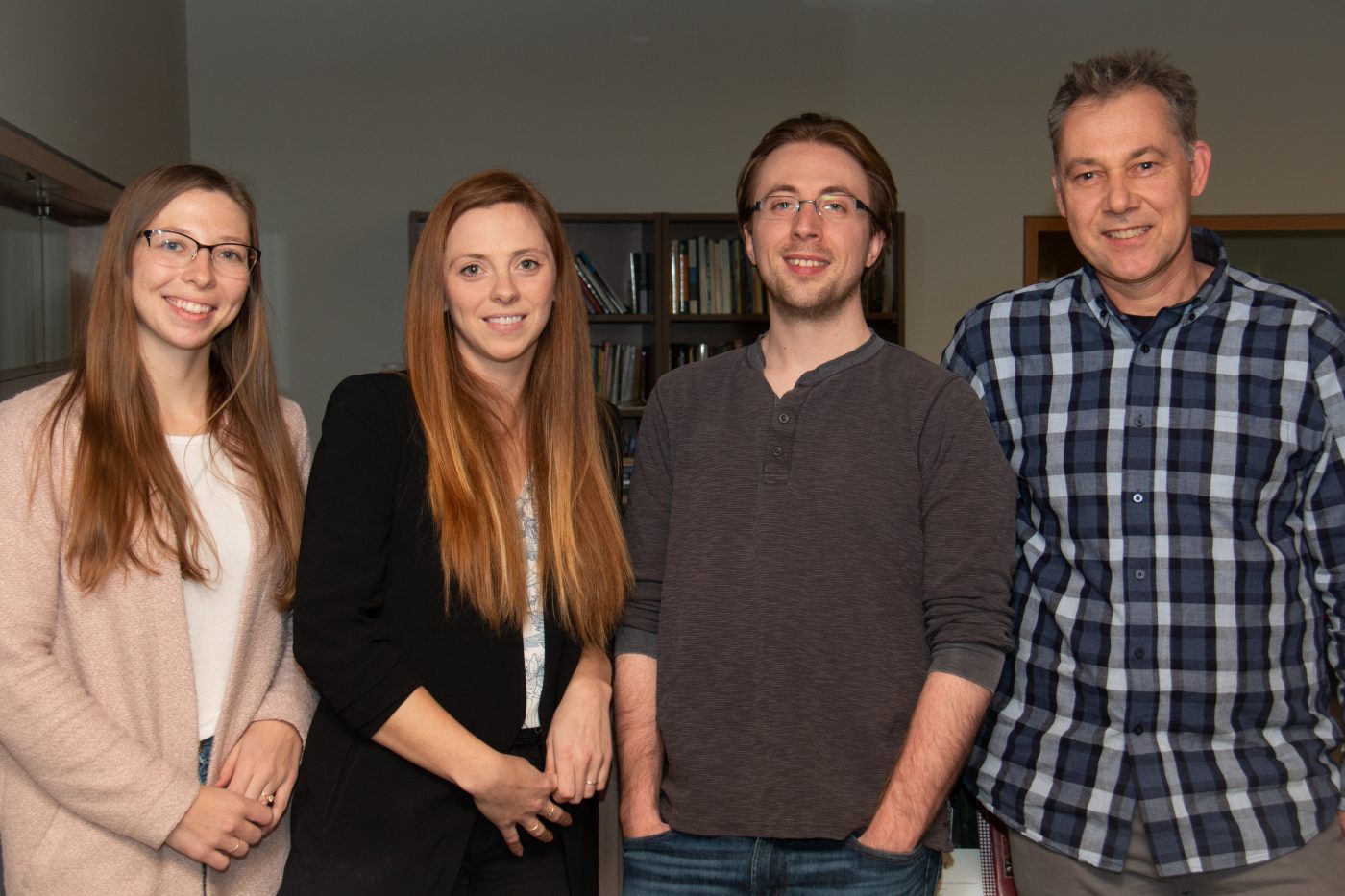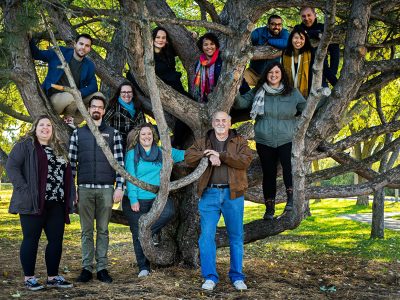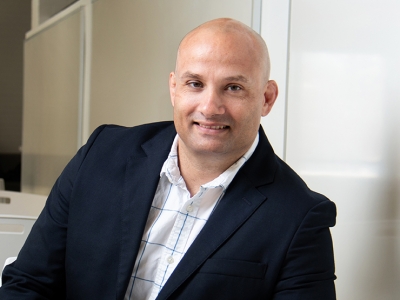By Karen Kelly
Photos by Bryan Gagnon
Last summer, graduate student Jamie Desautels travelled to Gjoa Haven, Nunavut, an Inuit hamlet on King William Island above the Arctic Circle. She was there to conduct focus groups on the importance of “country food” in Inuit culture and collect survey data on preferences and food consumption patterns.
“Being on this project has given me an opportunity to learn about the Inuit culture and the importance of country food, further develop research and presentation skills, and apply my learnings from the MPPA program to the field I am interested in,” explains Desautels, who is pursuing a Master of Public Policy and Administration degree.
Desautels is part of a team of graduate students working with Associate Professor Stephan Schott in the School of Public Policy and Administration. He is co-lead on a $14.4 million project entitled FISHES: Fostering Indigenous Small-scale fisheries for Health, Economy, and Food Security, which is funded by Genome Canada, the Ontario government, and other funding agencies.
Jacqueline Chapman is also working with Schott. She joined his project, Towards a Sustainable Fishery for Nunavummiut, three and a half years ago as a PhD student in Biology specializing in fisheries. She also contributed to his project on food security, funded by Polar Knowledge Canada.

Left to right: Jamie Desautels, Jacqueline Chapman, Benjamin Faveri, Stephan Schott
Both of these projects are culminating in the FISHES research, which Chapman will be working on as a postdoctoral student in the School of Public Policy and Administration. She, Desautels, and Schott are returning to Nunavut in February to share the results of the previous research and kick-start the new work.
“The North really gets under your skin,” explains Chapman. “There is so much opportunity for collaborative research with communities where you work together to develop solutions. You really feel that little changes have the potential to make a big difference.”
The SPPA group will also introduce a social entrepreneurship component to their work. Master’s student Benjamin Faveri, an e-commerce entrepreneur, was awarded the Social Innovation Graduate Fellowship. He will travel with the group to meet the community of Gjoa Haven and eventually consult with them about small e-commerce business possibilities.
“This will just be an introduction to the community and a chance for me to watch how it works,” says Faveri. “I feel really fortunate to have this opportunity.”
Sharing Their Findings
After returning from the North, the team will present their research at the Emerging Perspectives Graduate Conference on March 9th and 10th as part of the FPA Research Series. Desautels says it’s a valuable opportunity to connect with others in the field.
“Presenting at Emerging Perspectives gives me an opportunity to draw linkages between my work and the work other team members are doing, to share my knowledge and experience with other students, and to further develop my research, based on questions and comments from students,” says Desautels.
The second annual conference will also feature two days of research discussion on topics such as economic and policy issues, energy and climate, cybersecurity, terrorism, and much more.
Thursday, January 30, 2020 in CSPC2021, Faculty Research, FPA Voices
Share: Twitter, Facebook



